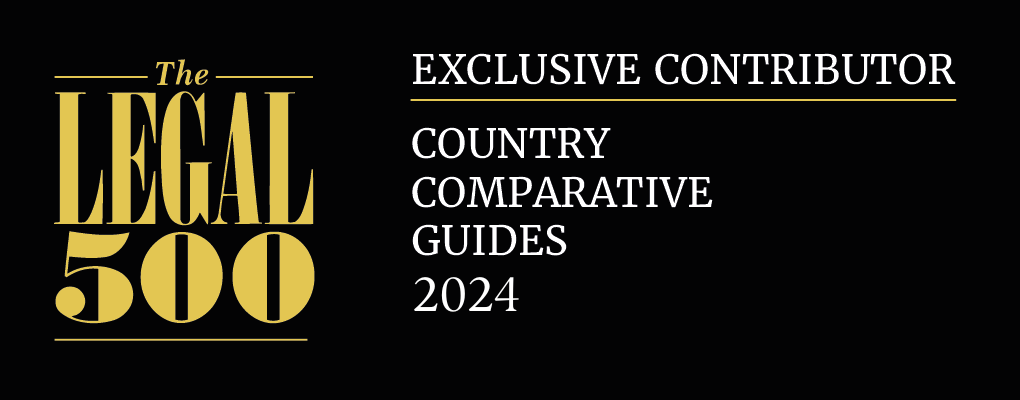

The Legal 500 Country Comparative Guides 2024 - Japan BRIBERY & CORRUPTION

1 What is the legal framework (legislation/regulations) governing bribery and corruption in your jurisdiction?
2 Which authorities have jurisdiction to investigate and prosecute bribery and corruption in your jurisdiction?
3 How is 'bribery' or 'corruption' (or any equivalent) defined?
4 Does the law distinguish between bribery of a public official and bribery of private persons? If so, how is 'public official' defined? Is a distinction made between a public official and a foreign public official? Are there different definitions for bribery of a public official and bribery of a private person?
5 Who may be held liable for bribery? Only individuals, or also corporate entities?
6 What are the civil consequences of bribery and corruption offences in your jurisdiction?
7 What are the criminal consequences of bribery and corruption offences in your jurisdiction?
8 Are mechanisms such as Deferred Prosecution Agreements (DPAs) available for bribery and corruption offences in your jurisdiction?
9 Does the law place any restrictions on hospitality, travel and entertainment expenses? Are there specific regulations restricting such expenses for foreign public officials? Are there specific monetary limits?
10 Are political contributions regulated? If so, please provide details.
11 Are facilitation payments regulated? If not, what is the general approach to such payments?
12 Are there any defences available to the bribery and corruption offences in your jurisdiction?
13 Are compliance programs a mitigating factor to reduce/eliminate liability for bribery offences in your jurisdiction?
14 Has the government published any guidance advising how to comply with anti-corruption and bribery laws in your jurisdiction?
15 Does the law in your jurisdiction provide protection to whistle-blowers? Do the authorities in your jurisdiction offer any incentives or rewards to whistle-blowers?
16 How common are government authority investigations into allegations of bribery? How effective are they in leading to prosecutions of individuals and corporates?
17 What are the recent and emerging trends in investigations and enforcement in your jurisdiction?
18 Is there a process of judicial review for challenging government authority action and decisions? If so, please describe key features of this process and remedy.
19 Have there been any significant developments or reforms in this area in your jurisdiction over the past 12 months?
20 Are there any planned or potential developments or reforms of bribery and anti-corruption laws in your jurisdiction?
21 To which international anti-corruption conventions is your country party?
22 Do you have a concept of legal privilege in your jurisdiction which applies to lawyer-led investigations? If so, please provide details on the extent of that protection. Does it cover internal investigations carried out by in-house counsel?
23 How much importance does your government place on tackling bribery and corruption? How do you think your jurisdiction's approach to anti-bribery and corruption compares on an international scale?
24 Generally how serious are organisations in your country about preventing bribery and corruption?
25 What are the biggest challenges enforcement agencies/regulators face when investigating and prosecuting cases of bribery and corruption in your jurisdiction? How have they sought to tackle these challenges?
26 What are the biggest challenges businesses face when investigating bribery and corruption issues?
27 How have authorities in your jurisdiction sought to address the challenges presented by the significant increase of electronic data in either investigations or prosecutions into bribery and corruption offences?
28 What do you consider will be the most significant bribery and corruption-related challenges posed to businesses in your jurisdiction over the next 18 months? 29 How would you improve the legal framework and process for preventing, investigating and p
rosecuting cases of bribery and corruption?
作者等:
大桥 君平
小野 洋一郎
书籍名和刊登杂志:The Legal 500 Comparative Guides
出版社等:Legalease Ltd.
业务领域:
企业刑事案件
发行年月日:
2024年06月11日
与大桥 君平相关的出版物情况
- 2025.10.20
- 【三人对话】与现任法官畅谈搜查令实务现状与展望(3)(拘留延长、拘留理由披露、保释)
- 2025.07.20
- 【三人对话】与现任法官畅谈搜查令实务现状与展望(2)(拘留)
- 2025.04.20
- 【三人对话】与现任法官畅谈搜查令实务现状与展望(1)(逮捕)
- 2024.08.20
- 陪审员审判案件在上诉审中的应对—从辩护的视角出发—
- 2023.04.20
- 在初审辩护活动不充分时上述审所能提供的救济
- 2022.07.01
- 网络安全与Coinhive事件的最高院判决
- 2019.03.01
- 搜查、公审合作型协商、合意制度的运用和辩护实践(后篇)
- 2019.01.01
- 搜查、公审合作型协商、合意制度的运用和辩护实践(前篇)
- 2016.03.01
- 刑事上诉审中的辩护活动
- 2012.04.01
- 信贷管理论
- 2007.12.01
- 刑事辩护初学者
与小野 洋一郎相关的出版物情况
- 2021.06.24
- 各种特别约定结合经营环境的有效利用也是“重新审视D&O保险的商讨要点”
- 2021.02.20
- EU投资规则的概要以及对日系企业的影响
- 2020.09.01
- 亚太地区的商业经营-IBA 亚太地区研讨会,2020年9月
- 2019.10.21
- 阅读“英文合同”的能力 从其他公司的案例中参考!合同理解偏差衍生出的实际问题及应对方法
- 2019.04.26
- 以新加坡电子商务为中心的消费者保护法律制度
- 2018.09.25
- The New Law on Integrated Resorts in Japan
- 2018.07.24
- 日本型IR(综合型度假胜地)事业终于开启
- 2016.08.20
- 特刊 深入了解法务英语 防止误解!法务英语中的陷阱2 邮件、交流
- 2016.06.01
- 新加坡个人信息保护法简介
- 2014.07.01
- 亚洲上市实务Q&A
- 2013.08.01
- 新加坡M&A
- 2013.03.01
- 新加坡通过个人信息保护法,从今年开始施行
- 2013.01.01
- 亚洲的法律事务所 ~新加坡篇~
与企业刑事案件相关的出版物情况
- 2019.03.01
- 搜查、公审合作型协商、合意制度的运用和辩护实践(后篇)
- 2019.01.01
- 搜查、公审合作型协商、合意制度的运用和辩护实践(前篇)
- 2016.03.01
- 刑事上诉审中的辩护活动
- 2007.12.01
- 刑事辩护初学者









